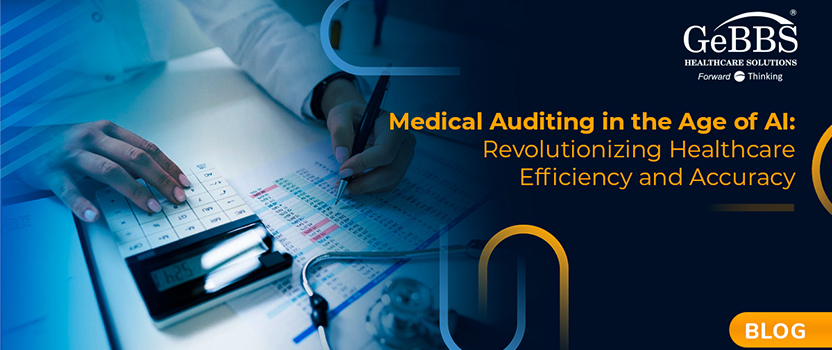Many are turning to technology as healthcare leaders seek ways to improve and enhance revenue cycle management (RCM) operations. In fact, the use of revenue cycle management automation has jumped to more than 78% of healthcare systems. Providers continue innovating and adapting their processes to keep up with the rapidly evolving healthcare landscape.
One technology that is playing a pivotal role in this evolution is robotic process automation (RPA) and other bots, which can streamline operations, reduce errors, and provide valuable insights. Read on to learn more about the various challenges providers face in revenue cycle management and how RPA can help overcome them. From data verification to denial management, let’s delve into the transformative potential of bots in healthcare RCM.
How Bots are Transforming the Challenges of RCM Today
Healthcare providers (HCPs) face several challenges as healthcare enters a new era. The sector must abide by complex regulatory standards like HIPAA, ICD, and other local regulations. Keeping up with these frequently evolving rules while ensuring seamless operational functionality is a challenging task. The burden of regulatory compliance increases the complexity of the medical billing process and the potential for errors that could lead to financial penalties or operational issues.
Another major obstacle in RCM is claims denials. These denials and managing, rectifying, and appealing them is a time-consuming and costly process. Plus, high denial rates indicate systemic issues affecting the overall financial health of healthcare organizations.
Adding to the complexity is the diverse range of payers, which includes different insurance plans, government programs like Medicaid and Medicare, and self-pay patients. Each payer type has its unique set of rules, regulations, and procedures, adding more complexity to the billing and revenue collection process. This variety leads to confusion and errors in the RCM process, potentially leading to delayed or missed payments.
Staff also remains a critical issue. The entire process is complex and requires trained professionals to handle it efficiently. However, finding, training, and retaining such skilled staff is a formidable challenge. The demand for specialties such as medical coding is exceptionally high, exacerbating the challenge of maintaining a competent RCM team.
Bots such as robotic process automation can offer significant advantages to HCPs facing these RCM challenges. By automating repetitive and time-consuming tasks such as claim submissions, payment processing, and data entry, RPA bots reduce errors and increase efficiency. They ensure compliance with complex regulations and payers, minimizing confusion and mistakes.
Plus, RPA alleviates the burden on staff, reducing the need for intensive training in administrative tasks and allowing them to focus on patient care. Applying RPA in revenue cycle management helps HCPs streamline their processes, reducing errors and optimizing their operations.
Leveraging Bots in RCM
How do bots transform RCM tasks today? Here are some of the ways that HCPs leverage bot technology to streamline and optimize their operations while improving accuracy:
Verification and Eligibility Checks
Bots improve operational efficiency and reduce the likelihood of errors leading to claim denials and compliance issues. It allows staff to focus more effectively and focus on delivering high-quality patient care.
Patient Data Verification. Accurate patient data from the start is essential to ensure proper care and billing, but manual data verification is time-consuming and prone to human error. RPA bots automatically verify patient data against different databases to ensure accuracy and avoid confusion. It not only reduces errors but also saves time.
Prior Authorization. Obtaining prior authorization is one of the most cumbersome aspects of healthcare administration. It requires extensive documentation and communication with insurance companies. RPA can automate this process. Bots pull necessary patient data, fill out required forms, and submit them to the insurer. They also follow up on pending authorizations, notifying staff when human intervention is needed.
Document Preparation. Creating and managing various documents are integral parts of healthcare operations, especially in RCM. Bots automated the process by gathering necessary data from multiple sources and populating it into required forms or documents. For example, an RPA bot could automatically compile necessary supporting documents for appeal in the case of a claim denial.
Medical Billing
RPA bots have transformative potential in medical billing, particularly in data export and the management of no-response claims.
Data Export. Medical billing requires extracting and synthesizing data from various sources, including EHRs, lab results, and clinical notes, which is often laborious and error-prone when done manually.
RPA can streamline this process when the bots are programmed to extract and compile necessary data from disparate sources automatically. They then accurately populate this information into the required billing documents or systems. It reduces the likelihood of human error, which leads to billing discrepancies and denials.
Managing No-Response Claims. Claims that receive no response from payers are a substantial issue in billing. They easily fall through the cracks, leading to lost revenue. Bots help by systematically tracking the status of each claim and identifying those that have not received a response within a specified time frame. They then automatically follow up on these claims by resubmitting them or sending notifications to staff for further investigation.
This systemic and persistent approach reduces the amount of revenue lost, improving the overall efficiency and financial health of HCPs.
Payment Posting
RPA is also crucial in the payment posting process, particularly in ERA and validation checks.
ERA Posting. Manual Electronic Remittance Advice (ERA) is a time-consuming task involving extracting information from ERAs and entering it into the practice management system or EHR. However, bots can automate this process, enhancing efficiency and accuracy. They can be programmed to interpret ERAs, extract the necessary information, and automatically enter it into the appropriate systems, saving significant time and reducing the chance of human errors.
Validation and Error Checks. Payment posting requires high accuracy, as errors lead to financial discrepancies, billing issues, and potential compliance risks. RPA reduces these errors by performing automatic validation checks, verifying that payment data matches what’s in the billing systems, and flagging any discrepancies for human review. Bots also check for common posting errors, such as duplicate or incorrectly allocated payments, and either correct them automatically or alert staff to the issue.
Denial Management
Bots are critical in denial management. They help providers identify and address the root causes of denials and manage exceptions more effectively. It leads to lower denial rates, faster resolution of issues, and improved revenue cycle performance.
Pattern Detection. One of the most significant advantages of RPA in denial management is its ability to detect patterns and trends in denials. Bots sift through large data sets to flag common reasons for denials, such as specific coding errors, missing information, or issues related to specific payers. Providers can address these issues that lead to high denial rates, improving their overall revenue cycle performance.
RPA also alerts teams to new patterns as they emerge, enabling a proactive response to potential issues before they become significant problems.
Exception Flow Management. Despite the best efforts to standardize and automate the revenue process, exceptions (or cases that deviate from the norm) will always occur. Managing these exceptions is one of the most challenging aspects of denial management. However, RPA can streamline this process.
Bots automatically route exceptions to the appropriate team member based on predefined rules. It ensures that exceptions are handled promptly and by the right people, reducing the time and effort needed to resolve them.
Innovating the Future of RCM With Bots
Bots such as RPA hold immense potential in streamlining revenue cycle management, improving operational efficiency, reducing errors, and providing valuable insights. Its applications in areas such as patient data verification, prior authorization, payment posting, denial management, and more significantly improve the financial health and the level of patient care HCPs can offer.
Don’t let the complexities of RCM hold back your healthcare organization. Discover how GeBBS Healthcare Solutions, a leading Revenue Cycle Management company, leverages RPA technology to transform your revenue cycle operations, making them more effective and efficient and allowing your team to focus on what matters most- delivering exceptional patient care. GeBBS has won numerous accolades for its medical coding outsourcing and medical billing outsourcing, including being ranked in Modern Healthcare’s Top 3 Largest RCM Firms, Black Book Market Research’s Top 20 RCM Outsourcing Services, and Inc. 5000’s fastest growing private companies in the U.S. Contact us today at gebbs.com to learn more.






